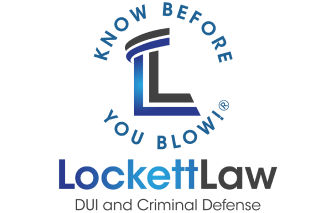DUI related Driver’s License Suspensions
DUI related Driver’s License Suspensions
They come in all shapes and sizes. The length of the suspension depends on a number of factors, including how many prior DUIs a person has as well as whether the case involves a breath, urine or blood test or a refusal to submit to any of the three. One’s license can either be suspended administratively by the DMV just by virtue of getting arrested for DUI, or suspended by the Court should a person be convicted of the DUI in the criminal case. So, it’s important to understand the difference. This is quite possibly the most confusing area of the “DUI World” for many people, even for many attorneys. It feels and looks a lot like double jeopardy for those whose licenses are suspended the day of their arrest, and then again months later if they are convicted in court in the separate criminal DUI case. So let’s dive in and discuss the difference between the “Civil/Admin” suspension and the “Criminal Court” suspension that are borne from the same DUI arrest.
CIVIL/ADMIN SUSPENSION
Also commonly referred to as the “DMV suspension”, this is the license suspension that the vast majority of those who are arrested for DUI in Florida will receive. Because of Florida’s Implied Consent laws, your license will be suspended if you are arrested for DUI and you agree to a breath test and blow over the legal limit, or you refuse it. Likewise, your license will be suspended “administratively” by DMV if you are asked to submit to a blood test and either refuse it, or if you agree to it and the blood levels come back over the legal limit. Lastly, if you are asked for a urine test and refuse it, your license will be suspended in the same manner. In Florida, unless your case involved a serious accident, the majority of those charged with a DUI will be asked to submit to a breath test.
You are entitled to challenge this administrative suspension through a “formal review hearing” with DMV. This will involve the attorneys (in most cases) issuing subpoenas for the listed officers and witnesses to appear at the hearing where they will be questioned under oath in front of a DMV Hearing Officer (not a Judge). After the testimony, the attorneys can make arguments in support of the request for invalidation. Invalidation means the DMV will, in some cases, opt to set aside the administrative suspension and the person can get a fully reinstated license. Or, as often times happens, the Hearing Officer will “sustain” the suspension which means this admin/civil suspension will remain in effect for the designated period of time (outlined below). Again, this is a civil proceeding, having no relationship with the companion criminal case discussed below. The decision of the DMV Hearing Officer in the civil hearings has no direct effect on the outcome of the criminal court proceedings.
For first time offenders, a waiver of the right to the formal review hearing can be made. The reason people opt for that is to avoid the potential for “hard time” (explained below). However, we do not typically recommend waiving. (See DMV Option Form for more info). You must have your attorney place the request for the formal review hearing within ten days of the arrest in order to protect your rights to various driving permits while the DMV proceedings are pending. For the first ten days after your arrest, your DUI citation is literally your driver’s license for those whose license was valid at the time of the arrest. (Sec. 322.2615(1)(a), Florida Statutes). However, for those who provided urine, administrative suspensions will never occur, so long as you agreed to a breath or blood test if asked.
The temporary ten day driving status expires on midnight of the 10th day following the date of arrest/issuance of the DUI citation. (Sec. 322.2615(b)(4)). At that point, the person will need to request a temporary permit that’s good for business purposes only (“BPO) while the formal review hearings are pending. (Sec. 322.2615(10); 322.271). This type of restricted license covers driving for necessary maintenance of your livelihood, including driving to and from work, necessary on the job training, driving for educational purposes and religious and medical purposes. (Sec. 322.271((1)(c)1). Also, within these first ten days, the request for a formal review hearing must be requested for those who elect not to waive this right to a hearing. (Sec. 322.2615(1)(b)(3)).
If the suspension is sustained/upheld after a formal review hearing, then a period of what they call “hard time” will occur where the person cannot drive for any reason, not even on a hardship basis. After the hard time is up, certain categories of persons may apply for a BPO license. (Sec. 322.2615(10). For first time DUIs, the hard time is for 30 days in breath cases. However, once the hard time is up, the person is eligible for a hardship license so long as the person has enrolled in the DUI school for the remaining period of the administrative suspension (e.g., 6 months in breath cases; 12 months in refusal cases, more outlined below). In applying for the restricted BPO license a person will need to offer information supporting the need for the BPO and there’s a possibility that the person will be asked to offer letters of support as well, among other things. (See Sec. 322.271(2)). Certain cases may involve the ability for an expedited review of ones eligibility for a BPO through a waiver of the hearing. (Sec. 322.271(2)(b)). Below are the different types of administrative suspensions, their lengths and the periods of hard time. (For out of state license holders, see the DMV Option Form for how all of this applies to you).
First DUI:
Breath/Blood Cases: 6 month suspension with 30 days of hard time should the suspension be sustained after the formal review hearing. (Sec. 322.2615(10)(b)).
Refusal Cases: 12 month suspension with 90 days hard time if suspension upheld after formal review hearing. (Sec. 322.2615(10(a)).
Those that waive their right to a formal review hearing will not have any hard time, but they will have to drive on a hardship basis for the entirety of the six month suspension period.
Second Offense DUI:
Breath/Blood cases: 12 month suspension with 30 days of hard time if suspension is upheld after the formal review hearing. If this occurs the person would be eligible to obtain a hardship after the hard time is over as long as the criminal case has not already been disposed of for a second DUI conviction. (Sec. 322.271(2)(a)).
Refusal Cases: If first offense involved a Breath or Blood test, the suspension period is 12 months with 90 days hard time if the suspension is upheld. If this occurs the person would be eligible to obtain a hardship after the hard time is over as long as the criminal case has not already been disposed of for a second DUI conviction. (Sec. 322.271 (2)(a)). If the first DUI arrest resulted in a refusal, then there would be an 18 month suspension with 18 months of hard time if the suspension is upheld. No hardship can be obtained.
Third and Subsequent DUI offenses:
Breath/Blood cases: 12 month suspension with 12 months hard time. (Sec. 322.271(2)(a)).
Refusal Cases: If all prior offenses were breath/blood cases, 12 month suspension with 12 months hard time. (Sec. 322.271(2)(a)). If any prior was a refusal, 18 months suspension, with 18 months hard time.
CRIMINAL DUI CONVICTION SUSPENSION:
This will only occur if the person is ultimately convicted of the criminal DUI charge as apart of the separate criminal case. This case is prosecuted by the State Attorney’s Office, and DMV has no involvement. DMV would become involved if and when the person is convicted in court as they will have to suspend in accordance with the criminal DUI statute, Sec. 316.193. The outcome of the civil DMV proceedings have no bearing on the outcome of the criminal case, and vice versa. One may prevail at the formal review hearing yet still lose in the criminal DUI case, just as one may lose in the civil hearings but prevail in the criminal case. Those with first time convictions may apply for a hardship BPO in much the same way as those applying for BPO’s in the civil proceedings outlined above. However, those with two or more DUI criminal convictions may not obtain a hardship until after specified periods of time have elapsed. The criminal conviction suspension begins the minute a person appears in court to enter their guilty or no contest plea to the DUI and are sentenced, so its important to have the DUI school done prior to court for those who are eligible for a BPO. For those convicted in criminal court for the DUI charge, the following circumstances apply:
First Time DUI Conviction:
Minimum 6 months (Max is 12 months) suspension, with an ability to obtain a BPO immediately if otherwise eligible. (Sec. 322.28(2)(a)1).
Second DUI Conviction
If the second conviction was within five years of the prior DUI, the suspension is for Five years with an ability to apply for a BPO after 12 months. (Sec. 322.28(2)(a)2; Sec. 322.271(2)(c)). Otherwise the suspension is for 6 to 12 months with no BPO.
Third DUI Conviction:
If the third conviction does not occur within ten years of a prior conviction, the suspension period is six to twelve months, with no BPO.
If the third conviction occurs within ten years of a prior DUI conviction, the suspension is for ten years with an ability to obtain a BPO after two years. (322.28(2)(a)3).
Fourth DUI Conviction and DUI Manslaughter:
Permanent revocation.
Criminal Defense Lawyer in Jacksonville, Florida
For those who have their DUI charges reduced to Reckless can expect to pay significantly less in many of the above categories and can also avoid some altogether. For more questions on these potential costs, call our office today, our Jacksonville DUI Defense Lawyers are ready to assist you!






